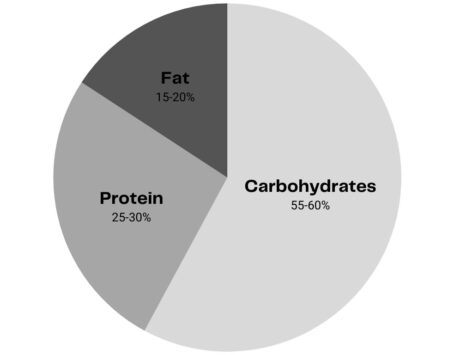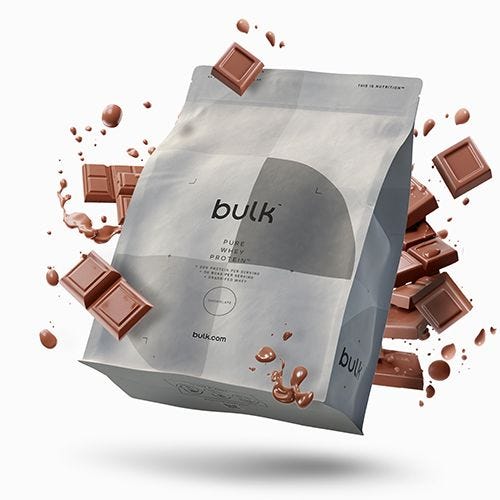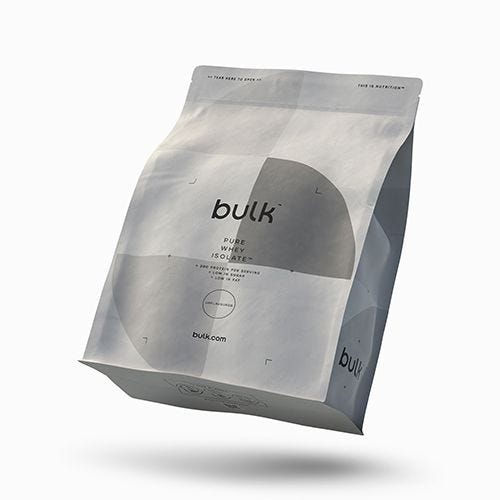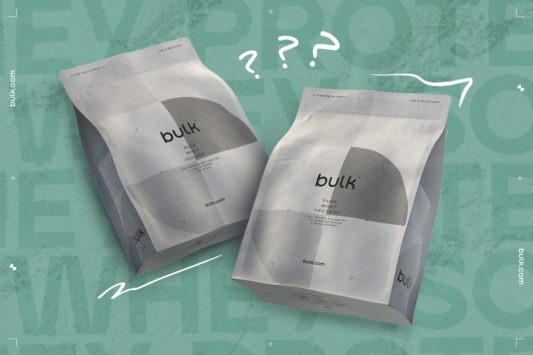Protein shakes are a popular and convenient way to add more protein to your diet. They’ve been shown to enhance muscle growth when paired with strength training and can also support fat loss without losing muscle.
Many people swear by a post-workout protein shake to maximise the results of their training. However, there are also benefits to be gained from consuming protein before training and at different times throughout the day. Here we’ll look at the facts surrounding the timing of protein consumption and the potential benefits available, whether you’re a seasoned athlete or at the start of your fitness journey.
The overall amount, quality and frequency of protein consumption is generally more important than the time of day it is taken.
Should you increase your protein before or after a workout?
Studies suggest that it doesn’t really matter whether you drink a protein shake before or after your workout. Total daily protein intake is more important.
Protein is necessary for muscle repair and growth. For convenience and cost-effectiveness, many people consume protein supplements such as shakes. Doing so after a workout is good, but not necessary.
Pre-workout
Several studies have shown that having a protein shake before exercise is in fact more effective to elevate MPS rates, rather than after. However, for those who prefer not to eat before training and choose to train in a fasted state, it is important to consume protein shortly after training to elevate MPS rates and minimise MPB.
Post-workout
Most people prefer to drink their shakes post-workout. Although this is not crucial for optimising muscle gain, it is a convenient and satisfying time to enjoy your shake – like a reward after a heavy session.
Getting your belongings from the gym training room, or coming back home after a session – these are both great triggers for you to remember to drink your shake. SO, although having a shake post-workout isn’t essential from a scientific perspective, it’s a great way to be consistent and build good habits.

How much protein do you need?
The recommended protein intake given by most nutritional organisations and the government guidelines is 0.8 grams protein per kilogram of body weight per day. However, this varies massively from person to person and is determined by sex, weight, lifestyle and fitness goals.
The truth is that 0.8 grams per kg is often not enough, especially if you’re looking to grow muscle. To back this up, one study suggests that those with the goal of maximising muscle mass and strength gains should be consuming 1.6 grams of protein per kilogram of body weight per day, at a minimum (1).
Similarly, the International Society of Sports Nutrition recommends consuming between 1 and 1.6 grams protein per kilogram of body weight, spread across four meals throughout the day (2). Remember, everyone’s requirements are different. But this is what the ISSN recommends for physically active people as a general guideline.
There isn’t even a definitive upper limit. While you certainly can consume too much protein, we don’t know for sure what the ideal upper limit is. Researchers are still working on that.
To see this explained in more detail, see our article on how much protein your body can absorb.

Does the “anabolic window” matter?
Anabolic means to “build up” whereas catabolic means to “break down”. Anabolism and catabolism are the two opposing sides of your metabolism. Exercise and consuming protein are two major anabolic stimuli that increase muscle protein synthesis (MPS) rates.
The “anabolic window” strategy involves consuming protein within 30-60 minutes of exercise to shift the body from a catabolic state to an anabolic state. However, research shows that this window is much larger than previously thought and both pre and post-workout protein intake can produce similar adaptations to muscle tissue when paired with strength training. Research shows that consuming protein within this “anabolic window” to maximise MPS and minimise MPB is only significant if training fasted (on an empty stomach).
The “anabolic window” is a theory which refers to the 30-60-minute window of time after exercise. The key idea is that consuming protein during this period provides maximum muscle-building benefits, however, there’s little scientific evidence to support this.
Why is protein important?
Protein shakes provide the body with amino acids (the building blocks of protein) which are involved in almost every bodily function, including nutrient absorption, muscle repair, and protein synthesis.
Muscle protein synthesis (MPS) is a biological process which enables muscles to recover from exercise (such as shoulder exercises or back exercises) that build strength and increase in size. However, the benefits are only effective when MPS exceeds the opposing process of muscle protein breakdown (MPB), and our muscles are in a constant cycle involving both processes.
For example, when we consume protein, MPS rates rise and once MPS exceeds MPB rates, this is referred to as a “positive protein balance” and results in muscle gain. Conversely, when in a fasted state, MPB rates rise, and if they exceed MPS rates this is known as a “negative protein balance” and can result in muscle loss.
Muscle protein breakdown may sound negative. However, studies have shown that we need some level of MPB to optimally maximise muscle growth and adapt to exercise. That’s because this process allows the body to break down muscle proteins damaged from exercise and recycle some of them into new muscle proteins.
Make sure to also see our article which answers the questions: should you have a protein shake for breakfast?

FAQs
Why should you take protein shakes?
Whether your goal is weight loss, muscle gain, or generally improving your fitness, protein shakes can assist your progress in many ways thanks to their wide range of benefits. Protein shakes support muscle gain, enhance recovery, improve performance, reduce muscle loss, and help to maintain muscle mass, even during weight loss.
Should you take a protein shake for breakfast?
Because our bodies don’t store excess protein, it’s important to consume it regularly as it’s vital for the basic function of every cell in our bodies. Eating a high-protein breakfast, suich as high-protein porridge, has been shown to improve muscle health by increasing muscle mass, energy expenditure (calorie output). A high protein breakfast has also been shown to help regulate blood sugar for up to four hours after eating.
Whey protein, the undisputed champion of protein supplements in both its popularity and efficiency, is a more rapidly digesting protein and has been shown to stimulate the rates of MPS most effectively.
Should you drink a protein shake before bed?
Research supports using a slow-acting protein such as casein before bed as this delivers a slower, sustained release of amino acids while you sleep. This being said, whey, casein and soy are all “complete” protein sources and the differences between their muscle-building properties are minimal. The primary difference is their speed of digestion.
Drinking a protein shake before bed also offers some surprising benefits and provides a perfect opportunity to stimulate MPS as you sleep. Having a protein shake before bed has also been shown to help boost your daily energy metabolism, (which can contribute towards weight loss) and has been shown to help improve quality of sleep.
Casein and soy are good to take before bed. This is because both are slower digesting proteins (casein being the slowest), meaning they stimulate MPS for longer so are more suitable for use before bed.

Summary
Regardless of your goals, your overall daily protein intake is of greater significance than whether you have a shake before or after training, so prioritise this first. For most people around 1.2-2g protein per kg of body weight per day is sufficient.
Whether you take a protein shake before or after your workout, they are undoubtedly a helpful addition to your diet to support your training. However, it’s important to remember that protein shakes are intended to supplement your diet to help you achieve your protein goals and should not be used to replace whole foods, which your body needs to gain a full spectrum of essential nutrients.
For more nutrition tips, recipes and ambassador workouts, check out @bulk and get involved in the conversation by tagging #TeamBulk and be part of our community.
Related articles
Eager to learn more? We believe that every person, with support, has the right to transform their lives through fitness. That’s why we’ve put together hundreds of articles with expert advice, all to help you on your fitness journey. From the best supplements for muscle growth to how much protein your body can absorb, check out our relevant articles below:
Related articles
Alcohol and muscle growth Whey isolate vs whey protein
When to drink protein shakes The benefits of liquid egg whites
Protein shakes for weight loss How much protein can your body absorb
Protein shakes with milk or water What is Clear Whey Isolate?
Best supplements for muscle growth Difference between Bulk™ Pure Whey Protein™ and Informed Whey®

















